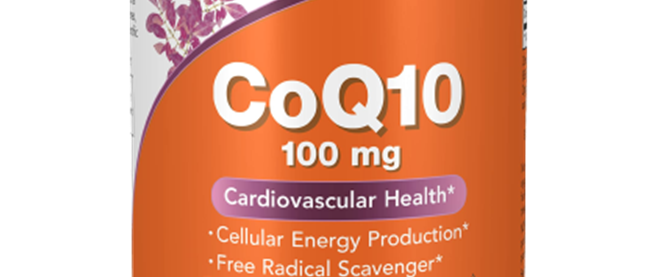Coenzyme Q10 (CoQ10) is a nutraceutical. It is a naturally occurring compound found in every cell of the body. It plays a crucial role in the production of energy in the cells, specifically in the production of ATP (adenosine triphosphate) by the mitochondria. CoQ10 levels decrease with age and can also be affected by certain medications, such as statins. Low levels of CoQ10 have been linked to certain health conditions, including heart disease and neurodegenerative disorders.
CoQ10 is also a powerful antioxidant that helps protect cells from damage caused by free radicals. It’s also been studied for potential benefits in managing high blood pressure, cancer, and periodontal disease.
Food safety knowledge is for all!

Every consumer deserves to have high quality and safe food. …Read more!

CoQ10 supplements are available in various forms, including capsules, tablets, and creams. It’s often used as a complementary or alternative medicine, but it’s important to note that more research is needed to establish its effectiveness and safety. Consult with your healthcare provider before taking any supplement, especially if you are taking any medications.
Food sources of Coenzyme Q10
Coenzyme Q10 (CoQ10) is found in small amounts in a variety of foods, the highest food sources of CoQ10 include:

- Organ meats such as liver and kidney, which are considered the best dietary sources of CoQ10.
- Fish such as salmon, mackerel, sardines, and tuna, which contain high levels of CoQ10.
- Whole grains, nuts, seeds, and legumes, such as whole wheat, brown rice, soybeans, peanuts, sesame seeds, and almonds, which contain small but significant amounts of CoQ10.
- Vegetable oils, such as canola, soybean, and olive oil, which are also good sources of CoQ10.
- Vegetables like spinach, broccoli and cauliflower contain low levels of CoQ10.
- Fruits like oranges, strawberries, and raspberries also contain small amounts of CoQ10.
It’s important to note that cooking and processing can lower the levels of CoQ10 in foods. To ensure that you are getting enough CoQ10, it’s important to eat a balanced diet that includes a variety of foods from each food group. However, to reach optimal levels, and if you have a specific medical condition that requires a higher intake, it’s advisable to take a CoQ10 supplement under the supervision of a healthcare professional. Read more here about the dangers of excessive intake of supplements.

Potential health benefits of Coenzyme Q10
Coenzyme Q10 (CoQ10) has been studied for its potential health benefits, which include:
- Heart health: CoQ10 may help lower blood pressure and reduce the risk of heart disease by improving the function of the heart muscle and blood vessels.
- Energy production: As CoQ10 is involved in the production of energy within cells, it may help improve physical performance and reduce fatigue.
- Neurodegenerative disorders: Research suggests that CoQ10 may help protect against neurodegenerative disorders such as Parkinson’s disease and Huntington’s disease.
- Migraine prevention: Studies suggest that CoQ10 may help reduce the frequency and severity of migraines.
- Infertility: CoQ10 supplementation may help improve sperm quality and increase the chances of conception in men with infertility.
- Skin health: CoQ10 is a powerful antioxidant that may help protect the skin from damage caused by free radicals, it has been used in some anti-aging skin care products.
It’s important to note that more research is needed to confirm the effectiveness of CoQ10 in these areas and the optimal dosage may vary depending on the individual. Consult with your healthcare provider before taking any supplement, especially if you are taking any medications.
Our Blog ↗
Read the latest from our blog
Ask a Question ↗
Ask a question and get answers from our community
Give Feedback ↗
We value your feedback.


